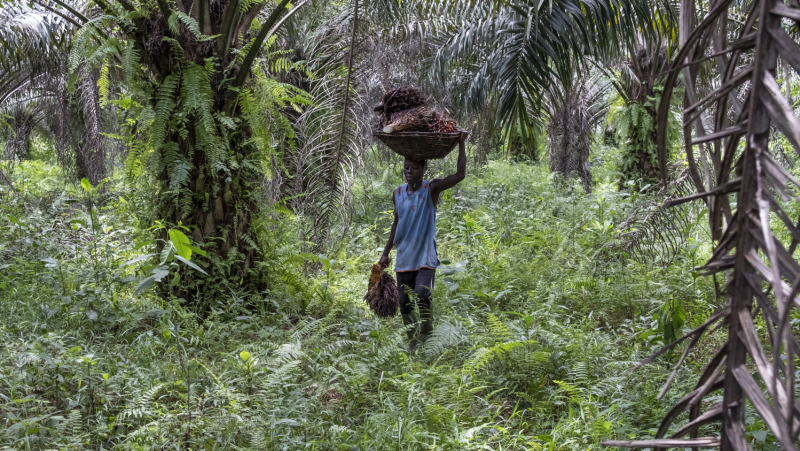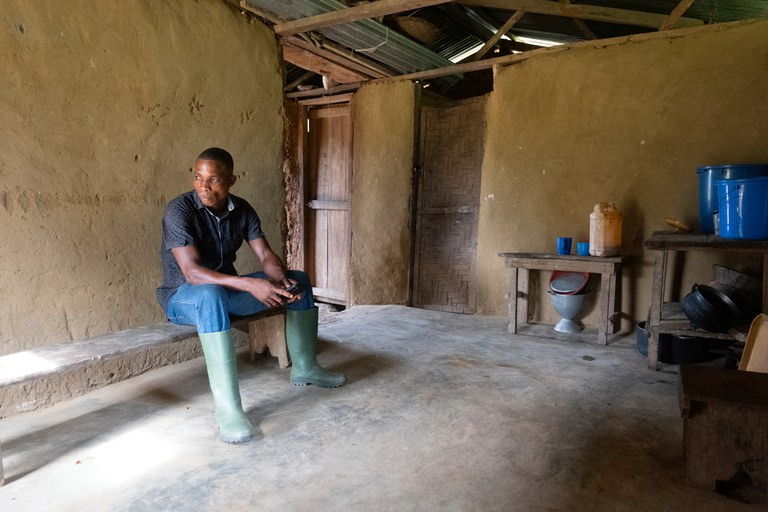ING runs away from its responsibilities

ING chooses to continue deforestation and human rights violations on the palm oil plantations in which they invest money. Affected residents in Liberia, Indonesia, Cameroon and Sierra Leone are left empty-handed.
In 2019, Milieudefensie together with sister organizations WALHI and SDI, filed a complaint against the ING Group (ING). This was done at the Dutch contact point for the OECD Guidelines for Multinational Enterprises. The complaint concerns the financing by ING of three palm oil companies: Noble Group, Bolloré Group/Socfin and Wilmar International. These companies are responsible for large-scale destruction of tropical rainforest (Noble), land grabbing (Bolloré) and child labor (Wilmar).
ING continues to benefit from deforestation and child labour
Under the guidance of the Dutch National Contact Point (NCP) for the OECD Guidelines for Multinational Enterprises we searched for solutions together with ING for years. But ING now chooses to stop this process. The bank runs away from its responsibility and leaves residents who suffer the consequences every day empty-handed. While the adverse impacts were recognized and not up for debate during the process.
Wouter Kolk, senior campaigner at Milieudefensie: “The unilateral withdrawal from Dutch bank ING is outrageous. The bank just steps back and leaves the mediation, without any consequences. ING continues to profit from its client‘s deforestation, child labor and human rights violations. This shows the urgent need for regulating the financial sector. ING has been financing controversial palm oil companies for decades.”
The palm oil companies financed by ING are often RSPO members or RSPO certified. However, they still cause serious social and environmental damage.
Uli Arta Siagian, forest campaigner from WALHI says: “The oil palm plantations, whether they are certified or not, lead to deforestation, peat and forest fires, water crisis, massive CO2 emissions, and related health and climate impacts all over the world. The companies structurally engage in child labour, human rights violations, and land grabbing. There are cases of sexual assaults against women workers. This clearly shows that the financial sector cannot rely on voluntary certification schemes to assess their clients.”
James Otto of SDI: “We are now calling on the Dutch contact point for the OECD guidelines to ensure justice and redress. They need to do everything possible to protect people's rights and prevent further forest destruction by oil palm companies. We continue to work with local communities to find other ways to hold ING bank and other financiers to account. They can walk away from the table, but not from the responsibility for their clients' misconduct.”

High time for binding rules - please share
This is another heartbreaking example that mutual agreements between companies are too weak and change almost nothing. It is high time for binding rules for companies such as ING, which obliges them to tackle deforestation and protect human rights. Will you help? Please share this news message.
The OECD complaint was supported by several international organizations, including ReAct Transnational, FIAN Belgium, HEKS, FERN and CNCD-11.11.11.
